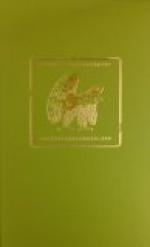After a while he folded the drawing to put it away, but as his glance fell on the contents of the box, he laid the plan on the table to take up the miner’s poke tucked in a corner made by a packet of letters, and drew out Weatherbee’s watch. It was valuable but the large monogram deeply engraved on the gold case may have made it unnegotiable. That probably was why David never had parted with it. Tisdale wound it, and set the hands. The action seemed suddenly to bring Weatherbee close. He felt his splendid personality there beside him, as he used to feel it still nights up under the near Yukon stars. It was as though he was back to one night, the last on a long trail, when they were about to part company. He had been urging him to come out with him to the States, but Weatherbee had as steadily refused. “Not yet,” he persisted. “Not until I have something to show.” And again: “No, Hollis, don’t ask me to throw away all these years. I have the experience now, and I’ve got to make good.” Then he spoke of his wife— for an instant Tisdale seemed to see him once more, bending to hold his open watch so that the light of the camp-fire played on her picture set in the lower rim. “You see Alaska is no place for a woman like her,” he said, “but she is worth waiting for and working for. You ought to understand, Hollis, how the thought of her buoys me through.”
But it was a long time to remember a picture seen only by the flicker of a camp-fire and starshine, and the woman of Tisdale’s imagination clouded out the face he tried to recall. “Still Weatherbee was so sensitive, so fine,” he argued with himself. “A woman must have possessed more than a beautiful body to have become the center of his life. She must, at the start, have possessed some capacity of feeling.”
He put his thumb on the spring to open the lower case, but the image so clearly fixed in his mind stayed the impulse. “What is the use?” he exclaimed, and thrusting the watch back into the bag, quickly tied the string. “I don’t want to see you. I don’t want to know you,” and he added, pushing the poke into its place and closing the box; “The facts are all against you.”
CHAPTER IV
SNOQUALMIE PASS AND A BROKEN AXLE
Tisdale leaned forward in his seat in the observation car. His rugged features worked a little, and his eyes had their far-sighted gaze. Scarred buttes crowded the track; great firs, clinging with exposed roots to the bluffs, leaned in menace, and above the timber belt granite pyramids and fingers shone amethyst against the sky; then a giant door closed on this vestibule of the Pass, and he was in an amphitheatre of lofty peaks. The eastbound began to wind and lift like a leviathan seeking a way through. It crept along a tilting shelf, rounded a sheer spur, and ran shrieking over a succession of trestles, while the noise of the exhausts rang a continuous challenge from shoulder and crag. Then suddenly a mighty summit built like a pulpit of the gods closed behind, and a company of still higher mountains encircled the gorge. Everywhere above the wooded slopes towered castellated heights and spires.




